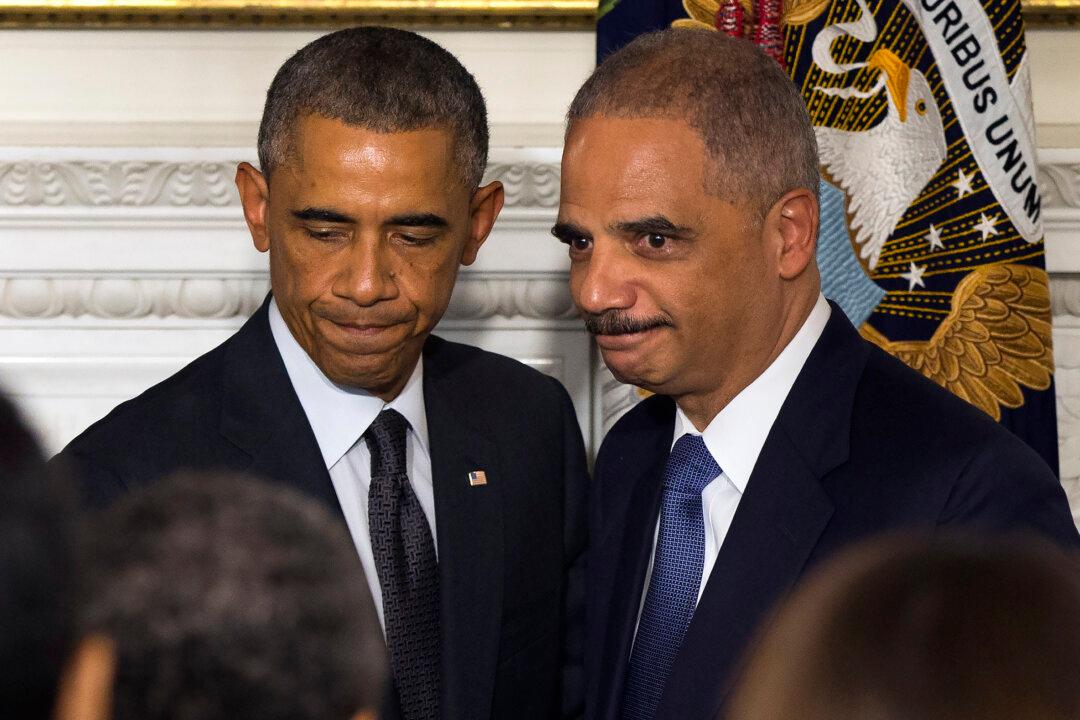While European countries pledge to ramp up anti-terrorism efforts after terrorists killed 12 in Paris two weeks ago, the United States is nudged to revisit its own anti-terrorism policies.
France, Belgium, even Ireland plan to introduce laws on combating terrorism. Britain should do the same, according to its former intelligence chief Jonathan Evans. European Union foreign ministers held talks on creating an anti-terrorism alliance. A special summit on the issue is planned for Feb. 12.
The United States, responding to the signals from its allies, has stepped up to add its voice to the issue.
On Friday, President Barack Obama met with British Prime Minister David Cameron to express his support for the fight against terrorism.
U.S. Attorney General Eric Holder announced a global anti-terrorism meeting in Washington on Feb. 18.
Former U.S. Defense Secretary Leon Panetta said it’s only a matter of time before the United States is attacked by terrorists again, Newsmax reported.
With a Monday Gallup poll showing a major decline in Americans’ satisfaction with their homeland anti-terrorism efforts, the time may be ripe for Obama to come up with some specifics.
But how exactly does Obama want to counter terrorism? There are serious questions about whether U.S. strategies in the Middle East in particular have been effective.
“Under the Bush administration, the received lesson we learned is that foreign occupations of places like Afghanistan and Iraq are counterproductive,” said professor Max Abrahms, a terrorism expert at Northeaster University.
Obama’s approach of removing troops created “power vacuums,” Abrahms said.
“Under the Obama administration we learned that the opposite response hardly fared any better.”
Obama’s bet on modern technology, like drones, to kill terrorists with “laser-like” precision received a critical blow when statistics showed drones kill as many as 10 times more civilians than conventional air strikes.
Rebels taking over Yemen’s presidential palace, just hours before Obama’s State of the Union address, further undercuts the president’s message.
Abrahms agrees the anti-terrorism climate in Europe, in some ways similar to the post-9/11 atmosphere in the United States, creates an opportunity to further a counterterrorism agenda.
But what the agenda should look like he couldn’t say.
“Scholars have not found a good way for governments to combat terrorism,” Abrahms said. “It really does seem like you’re damned if you do, damned if you don’t.”





